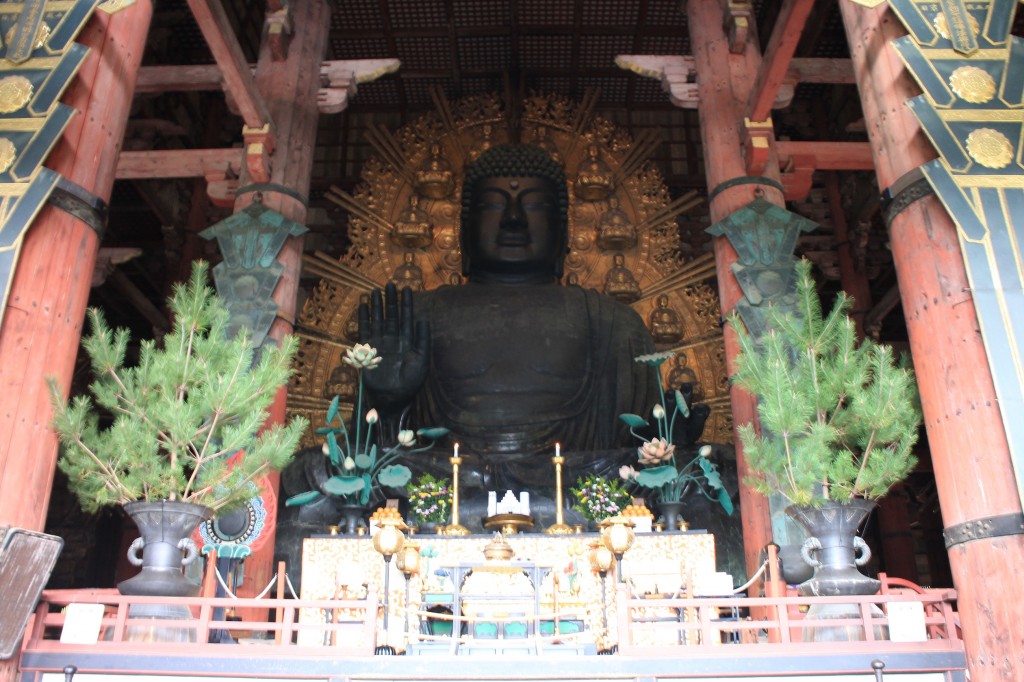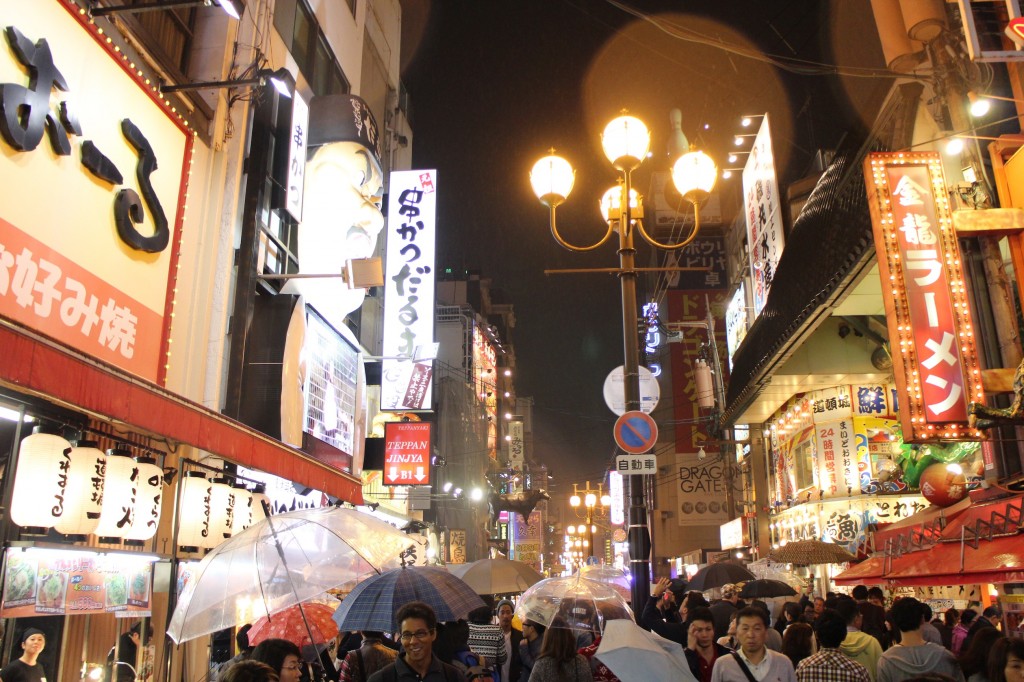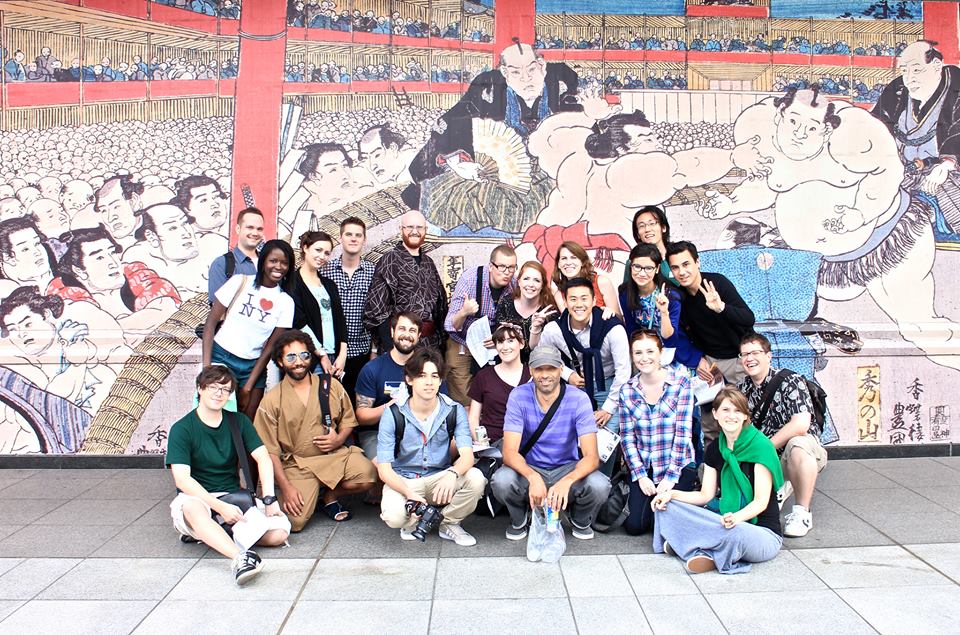
17
2013Living in Japan: Culture Shock
A reader suggested to me a while back that I should write about being a Westerner in Japan, and what that means in terms of culture shock. Before coming, I had researched etiquette and customs, and looked at a few sites that touch on the subject, but I thought I’d write down a few of my personal observations and feelings when I first arrived, and how I feel now after being here almost a year.

Culture Shock is Very Real
I have to be honest… I kind of thought since I’ve traveled so much all over the world, often for long periods of time, that I’d be immune to culture shock. WRONG. Visiting a country and living in a country are two vastly different experiences. Even to this day, sometimes when I wake up, sometimes on a train, or even at work, I think to myself “holy crap… I LIVE here now.” It’s a mixture of excitement, sadness, and bewilderment. I still can’t believe I took the plunge, even with a daily routine well in place here.

The Stages
Lots of sites talk about the stages of culture shock: fear, resentment, depression, acceptance, and I have to say, they’re pretty much dead on. I was very reclusive when I first got here. Doing anything was difficult, from ordering food or buying basics at the drugstore, and dealing with that frustration on a daily basis was exhausting. But every day it gets easier—I figure out a new word, or a way to get things done, and those little successes really keep me motivated.
The depression for me wasn’t too bad. Moving to Asia has been a dream of mine for so many years I think on some level I was mentally braced for it. The frustration still gets to me sometimes—not being able to transfer money at the ATM without help, not being able to read my mail… these everyday errands take much longer than they should, and the lack of language skill has really motivated me to study Japanese much harder!
How to Get Over It
If I had one piece of advice for someone coming over it would be this: just because something is different, doesn’t automatically make it inferior. Yes… apartments are small. That means less to clean and less clutter to waste money on! Yes, the style here is almost insufferably cute. So what? There are no rules to fashion— and you don’t have to wear it! By accepting the differences and embracing your own as a foreigner here, your life will be so much richer. Explore the new possibilities of your new home, and try something new every day.

From a physical standpoint, I think overall wellness helps with culture shock too. Sleep well, eat well, drink water…don’t neglect yourself. I walk so much more here I find myself hungry pretty much all the time. I’m eating way more meat than I ever did back home. The upshot is there are lots of healthy options in Japan, but there are LOTS of unhealthy ones too: fried everything, loads of snack foods and desserts. Rather than kick myself for eating tempura, I try to follow an 80/20 rule and enjoy all of the yumminess this country offers.

Make Friends
It can be tricky making friends from another country, but luckily, there are loads of meetups and international parties you can check out, where Japanese folks go to meet Westerners. And the expat community here is incredibly supportive and there are plenty of art shows, concerts, classes, and nights out to enjoy with people who speak your language. Get out and be around people every once in a while. It helps a lot!
If you have questions or need advice, feel free to message me on Facebook.
Ganbatte!





























Hiromi
Hi Cynthia, I found your site through Gaijinpot, I’m a Japanese woman living in France so I’m a gaijin too. It’s always interesting to talk about cultural differences and I think it’s good to share! I give Japanese language lessons online and I’m always looking for teaching materials on the internet. Lately I found this site. http://maggiesensei.com/
It’s really nicely done. And it’s fun. It’s not what you think it is from the impression you might get at first sight, it’s far more in details. I like the way she gives lots of sentence examples so that you can see how and when to use certain expressions. Besides her English is perfect. I recommend this site to all the gaijins. If you have time please take a look. My 19-year-old son currently living in Tokyo to study Japanese has difficulties because he talks English all the time with other gaijin friends and housemates.. by the way he wants to try the modeling job as ‘arubaito’ but doesn’t not really know where to start. The pictures you are to show to the agencies, could they be just normal shots taken by someone, I mean not by a professional photographer??
Thank you and ganbatte kudasai!
regards,
Hiromi
CynthPop
Hi Hiromi!
Thanks for the note and the advice– I’l definitely check it out!
Most foreign models here are working arubaito– but if he wants to be professional he really should get pro shots– there are loads of creative and student photographers in Tokyo that will do a trade with him. Tell him to start asking around to photography students about doing a test shoot!
That said– yes– he can certainly go to an agency with non-pro shots… but remember: image is everything in this business. I recommend getting a pro-shooter.
Thanks again! It’s nice to hear from other gaijin and get a sense of their experiences. Let me know when he starts going for auditions, and let me know if you have any questions!
Lubka Christova
Sounds fascinating. I thought I had a bit of cultural shock when moved the Bulgaria to UK, but nothing comparing to your big change.
I think that meeting new people and making friends is something that helps wherever you are.
Lu ❤
Bloggers World Project
http://www.balgarka.co.uk
CynthPop
Bulgaria! Wow… THAT sounds fascinating. Have you blogged about it? Send me a link!
And I totally agree! Being open and willing is what ex-patriotism is all about
Thanks for the note. Always looking to make new blog pals.